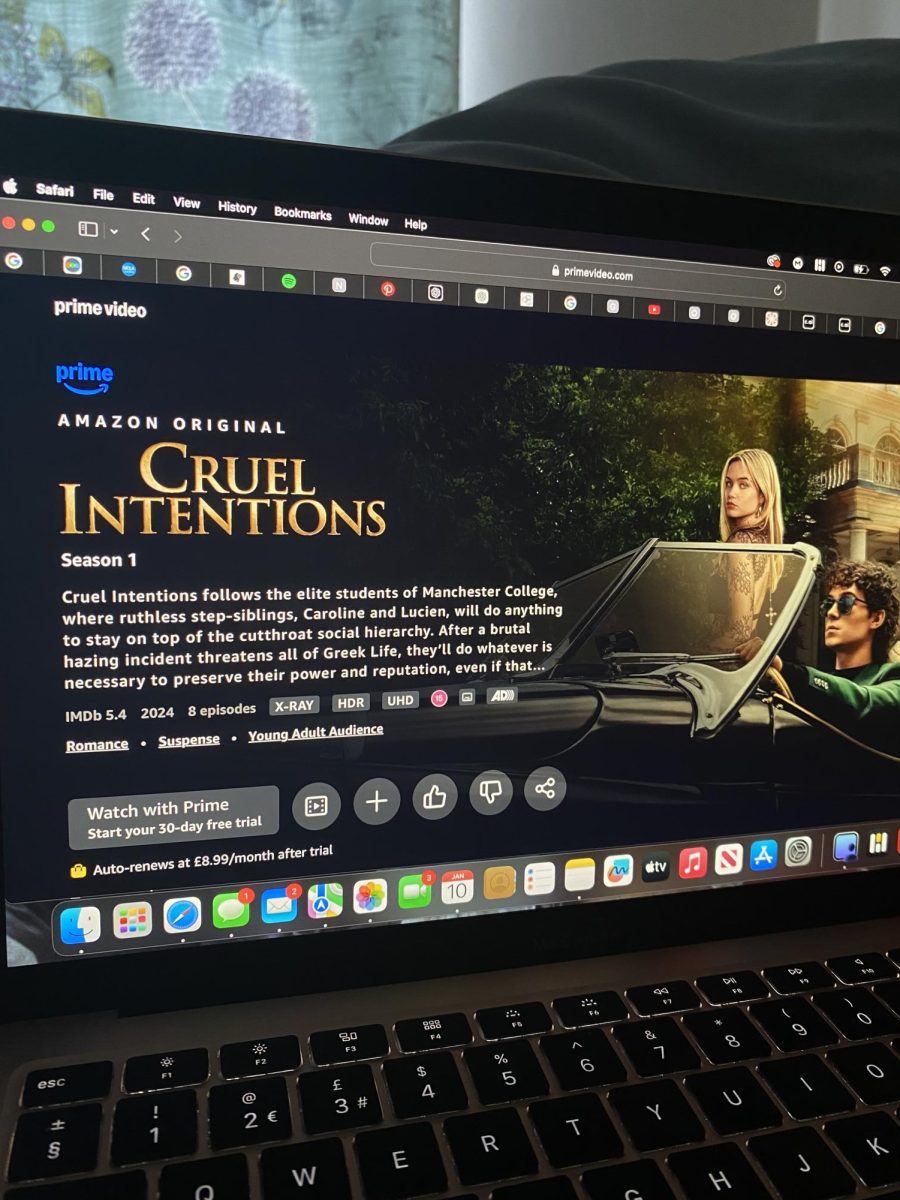“Ryan Murphy’s Monsters: The Lyle and Erik Menendez Story is a phobic, gross, anachronistic, serial episodic nightmare that is not only riddled with mistruths and outright falsehoods, but ignores the most recent exculpatory revelations,” the Menendez family wrote in a statement concerning the brand new season of Ryan Murphy’s Monsters anthology TV series.
The new season focuses on brothers Lyle and Erik Menendez, who killed their parents in their Beverly Hills home on August 20, 1989. Already, many have found the show’s depiction of the case to be controversial. The brothers, who were 21 and 18 years old at the time of the murders, testified that they killed their parents because they were in fear for their lives. Their actions, they claimed, were a result of years of emotional, physical, and sexual abuse from their parents, most notably their father. Despite their defense, the brothers were sentenced to life in prison without the possibility of parole on July 2, 1996. They’ve been behind bars ever since.
Much of the backlash Monsters has received is due to the many proven inaccuracies Ryan Murphy, co-creator and co-writer of the show, wrote into the new season. One of the most popular observations audiences—and fellow Spectrum writer Isabella Pires—gathered from the show was Murphy suggested that the brothers had an incestuous relationship. This is illustrated in scenes where the brothers share a quick kiss with each other. They even have sexual relations in a scene where reporter Dominick Dunne speaks about how Kitty, Erik and Lyle’s mother, once caught the brothers in the shower together. In reality, there is no proof that the two brothers have ever had a relationship that was incestuous.
Viewers noticed that the relationship the brothers shared wasn’t the only inaccurate thing about them; the way they were portrayed was also flawed.
In Monsters, Lyle Menendez was written as an erratic, unstable individual. He would often go into fits of rage in which he yelled at everyone in the room. In one scene, Erik confesses that he murdered his parents to his therapist, Dr. Jerome Oziel. Dr. Oziel calls Lyle and tells him to come to the office as a reaction and a way to neutralize the situation. On his way there, Lyle is seen yelling at other cars for driving too slow, as he is unaware of why Erik is there and what he said to make Dr. Oziel phone him. Once he arrives and Dr. Oziel tells him that he knows Erik and Lyle killed their parents, Lyle loses his cool, starts yelling at Erik, and threatens Dr. Oziel’s life.
This angry, unpredictable man in the TV show is the complete opposite of how Lyle is described in real life. When he was 14, Lyle was known to still wet his bed and played with stuffed animals. He even had names for all of them, as described by his testimony from the brothers’ trial. In addition, both Lyle and Erik were tested on their emotional and cognitive maturity during the trial. It was found that Lyle had the same maturity as an eight to 10 year old. This suggests that Lyle was not an aggressive, hostile man, but was rather a scared little boy trapped inside of a grown man’s body.
The other brother, Erik, was written somewhat accurately compared to how he was in real life. In both the show and real life, Erik was the more quiet, sensitive brother. However, a big piece Murphy got wrong about Erik was his sexuality. In the show, Murphy makes Erik a gay man. This is not true. In real life, Erik got married in prison to Tammi Menendez. During the trial, he told prosecutors that he was not gay multiple times, but he had questioned his sexuality due to his father molesting him. By portraying Erik as gay, Murphy reinforces a negative stereotype that men who are sexually assaulted by other men end up gay.
Other problems audiences had with the show included scenes that were over the top. These include an elaborate escape plan from prison that Lyle created, which involved getting plastic surgery, and a scene that pokes fun at a script Erik wrote called Friends. Lyle goes on a rant, questioning who would ever watch something with that title.
This kind of humor does not fit into a show that is meant to be a serious recollection of real events. With all of Monsters‘s faults and inaccuracies, many people have asked the question, “Why are shows like these necessary?”—including myself.
Monsters is not the first piece of media to be made based off of a crime, and it definitely will not be the last. Shows such as The Act, The Girl From Plainville, and Love and Death are just a few examples of fictional TV shows that are based on real crimes. However, one specific show that’s important to discuss is actually the first installment of Ryan Murphy’s Monsters anthology series: The Jeffrey Dahmer Story.
Dahmer was nominated for 13 Emmys and won the Best Supporting Actress category (Niecy Nash). However, the show has been heavily criticized by audiences and critics alike for taking the story of a serial killer who ruthlessly (and without mercy) took the lives of 17 men and tried to shine him in a light better than some of the victims were shown.
In the show, Murphy paints Dahmer as growing up in a broken household with a mother who didn’t love him and an emotionally unavailable father. It’s the classic serial killer route: “My mom didn’t love me enough as a kid, so now I must cause pain to the rest of society to make up for it.” However, for some people, the whole empathy thing actually works. Since the show came out in September 2022, fanpages for Dahmer have popped up on various social media apps, such as Instagram or TikTok, with people making edits and defending Dahmer and all of his horrific actions.
As the show became more and more popular, victims’ families began to speak out about how they were never contacted prior to the show’s release. With the little promotion Netflix gave the show, few were aware of its existence until it blew up. Rita Isbell, sister to Errol Lindsey, who was 19 when he was murdered, made a statement about the show. She said, “I was never contacted about the show. I feel like Netflix should’ve asked if we mind or how we felt about making it. They didn’t ask me anything. They just did it.” This statement, as well as others that came from victims’ families, all shared the same message: that Netflix didn’t ask for permission, and that they all felt violated by Netflix creating a show about the man who took their loved ones’ lives.
I talked to DHS’s own true crime teacher Tara Kearney about her opinions on true crime TV shows. She said “[true crime shows] shouldn’t be made unless consent is given” from victims’ families. She also expressed concern that people often call themselves true crime lovers despite only watching these kinds of shows, which don’t give you facts, but rather fiction. Ryan Murphy himself believes that in Monsters, he shows all perspectives of what happened and they should not be viewed as facts, but opinions.
By watching TV shows such as Monsters that focus on these infamous cases, people feed into these fake versions of reality. Unfortunately, this fuels the production of more seasons that give platforms to those who were wrong in their actions, and creates false portrayals of the true victims in each crime. It’s pretty obvious that Ryan Murphy doesn’t care too much about all the pushback he gets from people, especially when he can’t even acknowledge the flaws of his work. When asked about Erik’s response to Monsters, which he stated was full of “blatant lies,” Murphy said, “I know he hasn’t watched the show, so I find that curious.” He added, “The Menendez brothers should be sending me flowers… I know for a fact that many people have offered to help them because of the interest of my show and what we did.”
Perhaps Murphy is right. This show did fuel my interest in the brothers’ case—but it also inspired me to write this article, and how Murphy and people in Hollywood prefer money over morals when it comes to shows like these. The Menendez brothers were portrayed in a worse light than Dahmer was, showcasing two victims of sexual abuse who thought murder was their only way to escape lifelong abuse. Then, you have Dahmer, someone who took 17 innocent lives for no reason—except because he wanted to, due to a lack of parental love as a child.
A statement from 24 extended family members of the Menendez brothers sums up everything I am trying to say in this article: “It is sad that Ryan Murphy, Netflix, and all others involved in this series, do not have an understanding of the impact of years of physical, emotional, and sexual abuse. Perhaps, after all, Monsters is all about Ryan Murphy.”




















